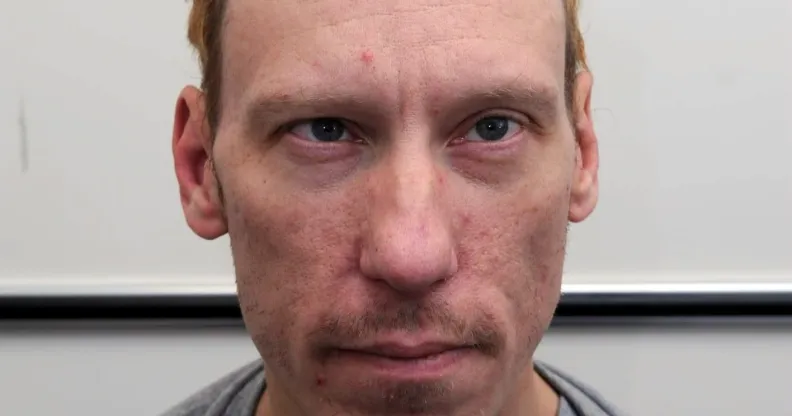Grieving boyfriend of Stephen Port victim ‘pushed out’ by police because he’s gay, inquest told

Stephen Port killed four young gay men between June 2014 and September 2015.(Metropolitan Police)
The partner of one of serial killer Stephen Port’s victims has said he was “pushed out” of the police investigation because they were a “gay, unmarried couple”.
An inquest is currently taking place into Port’s crimes, aiming to assess the competency of the Met Police in investigating the murders of his four victims: Anthony Walgate, Gabriel Kovari, and Daniel Whitworth, and Jack Taylor.
Port used dating apps like Grindr to seek out young gay men before bringing them back to his apartment for sex. He murdered his victims with fatal doses of the drug GHB between June 2014 and September 2015 and sexually assaulted many other men.
Ricky Waumsley was in a relationship with 21-year-old Whitworth, who in 2014 became the third and youngest victim of the “Grindr killer”.
Whitworth’s body was found in the in the churchyard at St Margaret of Antioch, Barking, near Port’s flat. He was discovered with a “suicide” note taking responsibility for the death of Port’s second victim, Kovari. The note was later discovered to have been fabricated by Port.
Despite bruising under Whitworth’s arms which suggested his body had been manipulated, police treated neither death as suspicious.
On Monday (8 November), Waumsley described his experience of the police investigations to the inquest.
He said, according to The Independent: “If it was a straight couple I wouldn’t have been pushed out as much as I was at the time.
“They dismissed me in every single way. I believe and I stand by it, it was because we were a gay unmarried couple.”
Partner of Stephen Port victim Daniel Whitworth was never even allowed to view his supposed ‘suicide’ note
Ricky Waumsley told inquest jurors that he felt police should have worked harder to verify the handwriting on the “suicide” note found with his boyfriend Daniel Whitworth, and said he wasn’t allowed to see the note until a year later.
“I just felt that they took the suicide note at face value,” he said.
“I believe they didn’t do any more than that. That was my thought on it.
“I thought they could have done more, they could have at least checked the handwriting and made sure that it was correct, and not just asked [Whitworth’s parents] at the time who were grieving and who are not in that profession [of] looking at handwriting.”
Waumsley said he felt “really angry” that he was not allowed by police to look at the note, adding: “He was my partner of four years and I wanted to see what he had to say for himself.”
On one occasion, Waumsley and Whitworth’s parents attended the churchyard where his body had been found. Officers insisted on discussing the case privately with Whitworth’s parents, which made Waumsley feel “pushed out by the police”.
On another, Whitworth’s stepmother asked police what the drug GHB was. Waumsley said officers told her to ask him “because he should know”.
Jurors heard that in 2017, Waumsley said in a complaint to police: “I didn’t understand how they could just brush her question off and say that a typical gay person would know about drugs like that.
“I believe the police made too many assumptions from the content of the letter and not just because Daniel was gay.
“I think they must have looked at the letter and taken it at face value and thought that was job done.”
In 2015, an inquest into the deaths of Kovari and Whitworth returned an open verdict, but coroner Nadia Persaud admitted at the time that she had “some concerns surrounding Daniel’s death which have not been answered by the police investigation”.
In late 2015, Stephen Port murdered his fourth victim, Jack Taylor, whose body was found in the same churchyard and Whitworth’s and Kovari’s.
Finally, after extensive research by friends and families of the victims which was highlighted to PinkNews, police were pressured to investigate the spate of deaths as linked. Port was arrested on the morning of 18 October, 2015.
During his trial, the media coverage of the “Grindr killer” prompted further victims of Port’s to come forward, which added seven charges of rape and four of sexual assault to Port’s four murder charges.
Port denied all charges against him, but was convicted and given a whole-life sentence for his crimes.
The inquest continues.

